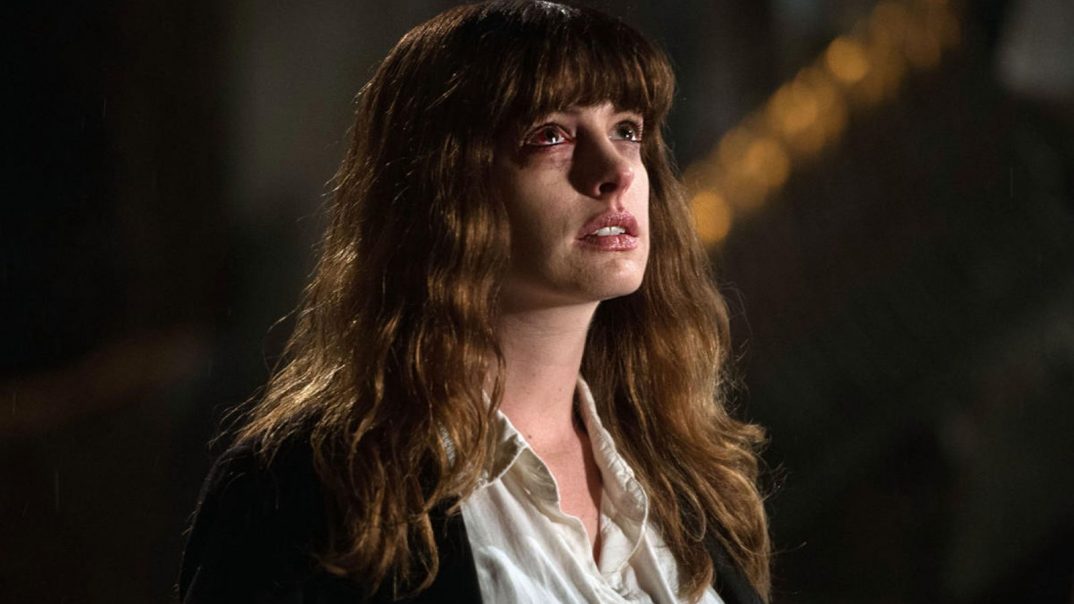Colossal is a movie that desperately needs to be seen. If you take nothing else away from this review, know that this is one of the most inventive and awe-inspiring films we’re likely to see all year, and barring a propensity to being triggered by scenes of emotional and physical abuse, Colossal should be seen by as many people as possible to support its creators both artistically and financially. It really is a seeing-is-believing sort of scenario, and while I would love to end the review right there and let you all experience it for yourselves, most of you are probably reading this to glean why you should give a damn. So…
Anne Hathaway stars as Gloria, an alcoholic whose self-destructive tendencies have led to her being kicked out of her boyfriend’s apartment so that she has to move back to her hometown in order to recover and find some stability before resuming her life in New York. She runs into an old classmate named Oscar (Jason Sudeikis), who runs a local bar and offers Gloria a job while she gets back on her feet. Suddenly, halfway across the world in Seoul, South Korea, a giant monster starts destroying the city. While this is seemingly unrelated to Gloria, it soon becomes clear that the monster only appears when she enters a certain park at a certain time of day and mimics her movements exactly, meaning that the monster’s destructive path is essentially her alcoholic stumble home.
If you pegged this as a literalized metaphor for how substance abuse has adverse effects on people other than the people abusing those substances, then you’re right on the money, and while that is a pretty clever conceit on its own, Colossal is much more ambitious than that, actually leaning so far into its magical realism that a whole other layer of social commentary rises up from underneath. It’s a story that feels small in its staging, yet huge in its impact on the world in ways that are really only apparent once some huge revelations come to light. Writer and director Nacho Vigalondo has put together a truly powerful narrative that could have been incredibly goofy in the wrong hands, but here is self-serious yet self-aware enough that the entire experience works simultaneously on a textual, metatextual, and subtextual level.
If you need something a little less vague to recommend the film, know that the performances are superb. Hathaway is at once charming and empathetic in her dependence on alcohol, yet also a complete ass when she doesn’t grasp the impact of her selfishness on others. It’s great to see her back in a leading role, and this is a meaty role to grapple with, though equally complex is Sudeikis’s portrayal of Oscar. Sudeikis’s performance is friendly and relatable, though just a little bit off at first, and once the layers start peeling back to reveal just what is exactly is going on with Oscar, Sudeikis delivers what might just be one of the most engaging performances of the year.
If I have one qualm with Colossal, it’s that the climax—which I do not even remotely dare to spoil—doesn’t quite come together in terms of the logistics and rules previously established by the film, even if it works on a thematic and cathartic level. But in terms of an overall package, few films are as uniquely and inventively poignant as Colossal, and I would be shocked if this weren’t in my top ten list at the end of the year. Now quick, go see it before some asshole on the internet spoils it for you.













